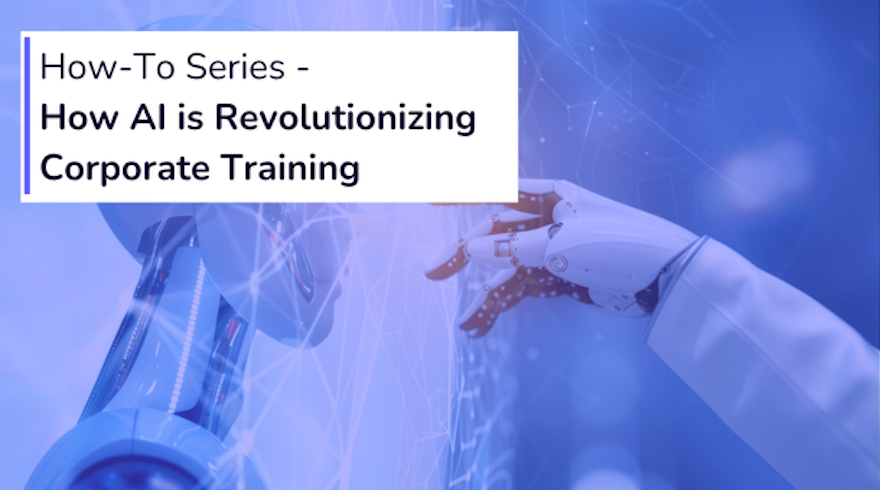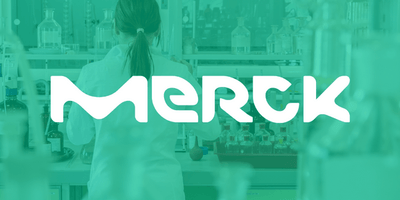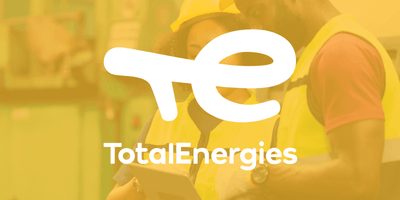For pharmaceutical Quality and Learning & Development teams, staying compliant while keeping training engaging and effective has never been more challenging. Enter artificial intelligence—a technology that's fundamentally transforming how organizations approach corporate learning, particularly in highly regulated industries like pharma.
Introduction to AI in Learning & Development
What is AI in Corporate Training?
Artificial intelligence in corporate training refers to the use of machine learning algorithms, natural language processing, and predictive analytics to create more intelligent, responsive, and effective learning experiences. Rather than one-size-fits-all training modules, AI enables systems that adapt to individual learners, automate content creation, and provide data-driven insights into training effectiveness.
In practical terms, AI can power adaptive learning platforms that adjust difficulty based on learner performance, generate customized training content from existing materials, analyze skill gaps across your organization, and even create video-based training materials automatically from standard operating procedures.
Why AI Matters for L&D and Compliance Teams
The pharmaceutical industry faces unique training challenges: stringent regulatory requirements, frequent updates to compliance standards, complex technical procedures, and the critical need for documentation and audit trails. AI addresses these challenges head-on.
For pharma compliance teams specifically, AI enables automated regulatory updates, real-time content validation against current standards, intelligent tracking of training completion and competency, and rapid response to new compliance requirements. With regulatory bodies increasingly focused on AI in pharmaceutical processes, having robust training systems is essential.
Top AI Use Cases in Corporate Training
Adaptive and Personalized Learning
Traditional training treats all learners identically, but AI-powered systems recognize that a quality control analyst and a production supervisor need different learning paths. Adaptive learning platforms use AI to assess each learner's current knowledge, learning pace, and preferred styles, then dynamically adjust content difficulty and format.
For pharmaceutical training, this means technicians who struggle with certain procedures receive additional support and alternative explanations, while experienced staff can accelerate through familiar material and focus on new updates. The system continuously learns and improves its recommendations based on outcomes.
Automated Content Creation and Curation
One of the most time-consuming aspects of L&D is creating and updating training materials. Generative AI is transforming this process by automatically converting existing documentation into engaging training content, updating materials when regulations change, translating content for global teams, and generating assessments aligned with learning objectives.
For pharma companies managing extensive SOPs and regulatory documentation, AI can analyze these documents and automatically generate training modules, complete with quizzes and interactive elements. When a procedure changes, the AI can identify affected training materials and flag them for updates or even suggest the necessary changes.
Skill Gap Analysis and Learning Path Optimization
Understanding where your workforce needs development is crucial for compliance and operational excellence. AI-powered analytics can assess current competencies across your organization, identify gaps between required and actual skills, predict future skill needs based on industry trends, and recommend personalized learning paths to close gaps efficiently.
In pharmaceutical manufacturing, for example, AI can analyze performance data, training completion rates, and quality metrics to identify specific areas where additional training would have the greatest impact on quality outcomes and compliance.
Compliance Training and SOP Video Automation
This is where AI becomes particularly powerful for pharma teams. Modern AI tools can transform dense standard operating procedures into engaging video content, complete with narration, visual demonstrations, and interactive checkpoints. These videos can be automatically updated when procedures change, ensuring training materials are always current.
AI can also monitor regulatory changes and alert L&D teams when training updates are needed, helping organizations stay ahead of compliance requirements rather than reacting to audits.
Leading AI Tools and Providers for Corporate Training
Overview of Top AI Training Companies
The corporate training AI landscape includes several categories of solutions. Learning management system providers have integrated AI capabilities into their platforms for personalized recommendations and analytics. Content creation tools leverage generative AI to produce training materials from existing documentation. Assessment platforms use AI to create adaptive testing and measure competency. Video training solutions automatically generate visual training content from text-based procedures.
When evaluating AI training solutions, pharma companies should consider integration with existing quality management systems, compliance with industry regulations and data security requirements, ability to handle technical and scientific content, and audit trail and reporting capabilities.
Specialized Tools for Manufacturing and Pharma
Pharmaceutical organizations benefit most from AI tools specifically designed for regulated industries. These solutions understand the unique requirements of pharma training, including validation documentation requirements, detailed audit trails, support for regulatory frameworks, and integration with quality management systems.
Platforms like Speach.me specialize in transforming complex technical documentation into engaging video-based training, a critical capability for pharma companies with extensive SOPs and work instructions. The ability to quickly create compliant training videos from existing documentation can dramatically reduce the time and cost of keeping training materials current.
Benefits of Integrating AI in Corporate L&D
Increased Engagement and Retention
Traditional compliance training has a reputation for being dry and forgettable. AI changes this by creating more engaging, relevant, and personalized learning experiences. When training adapts to individual needs and learning styles, employees are more likely to stay engaged and retain critical information.
For critical compliance training where retention directly impacts product quality and patient safety, these improvements in engagement and retention are not just nice to have—they're essential.
Time and Cost Efficiency
AI delivers significant efficiency gains across the training lifecycle. Content development time drops dramatically when AI can generate initial training materials from existing documentation. Administrative burden decreases through automated enrollment, tracking, and reporting. Training delivery becomes more efficient as learners can skip material they've already mastered. Updates and revisions happen faster with AI-assisted content modification.
Companies switching to AI-enhanced eLearning have reported savings in the hundreds of millions of dollars. For pharmaceutical companies with large, geographically distributed workforces and frequent training requirements, these efficiencies compound quickly.
Data-Driven Training Insights
Perhaps one of AI's most valuable contributions is transforming training from an activity we hope is effective into one we know is working. AI-powered analytics provide real-time visibility into training effectiveness, learner progress and competency achievement, areas where learners struggle, and correlation between training and performance outcomes.
For quality and compliance leaders, this data is invaluable for demonstrating training ROI, optimizing training investments, identifying and addressing compliance risks, and making evidence-based decisions about training strategy.
Challenges & Best Practices for AI-Driven Training
Overcoming Technical and Integration Hurdles
Implementing AI in corporate training isn't without challenges. Common technical hurdles include integrating AI tools with existing LMS and quality systems, ensuring data security and privacy, particularly with sensitive pharma information, managing change and user adoption, and maintaining system reliability and performance.
Best practices for successful implementation include starting with a clear use case rather than trying to implement everything at once, ensuring strong executive sponsorship and stakeholder buy-in, investing in change management and user training, choosing vendors with experience in regulated industries, and planning for data integration and security from the beginning.
Ensuring Content Quality and Compliance
While AI can generate content quickly, quality and compliance cannot be automated away. Pharmaceutical companies must establish clear processes for validating AI-generated content, maintaining subject matter expert review and approval, ensuring content accuracy and regulatory alignment, and documenting the training development process for audit purposes.
The goal should be AI-assisted content creation with human oversight, not fully automated content generation. AI dramatically speeds up the process, but human expertise ensures accuracy and compliance.
Future Trends in AI and Corporate Learning
The evolution of AI in corporate training is accelerating. Looking ahead, we can expect more sophisticated personalization using multimodal learning approaches, virtual reality integration for immersive procedural training, and real-time performance support systems that provide just-in-time guidance during actual work.
Predictive analytics will become more advanced, identifying at-risk learners before they fail training and predicting future skill needs based on business strategy and market trends. AI will also increasingly support continuous learning by automatically identifying when refresher training is needed and delivering microlearning in the flow of work.
For pharmaceutical L&D teams, staying current with these trends will be essential for maintaining competitive training programs that drive both compliance and business performance.
Conclusion
AI is not just another technology trend—it represents a fundamental shift in how we approach corporate learning and development. For pharmaceutical quality and L&D teams, AI offers solutions to longstanding challenges: creating engaging compliance training, keeping materials current with changing regulations, personalizing learning at scale, and demonstrating training effectiveness with data.
The technology has matured beyond experimentation. Organizations that embrace AI-powered training now will gain significant advantages in efficiency, compliance, and workforce capability. Those that wait risk falling behind not just in training effectiveness but in their ability to compete for and retain talent in an increasingly competitive market.
The question is no longer whether to adopt AI in corporate training, but how to do so strategically and effectively. With thoughtful planning, the right technology partners, and commitment to quality and compliance, pharmaceutical organizations can transform their training programs from a compliance obligation into a strategic advantage.
Transform Your Training with Speach
Ready to revolutionize your pharmaceutical training with AI? Speach.me specializes in transforming complex SOPs and technical documentation into engaging, compliant video training that your teams will actually want to complete.
Join leading pharmaceutical companies using AI to reduce training development time by 70%, improve compliance outcomes, and create training experiences that drive real behavior change.
Get Started with Speach




